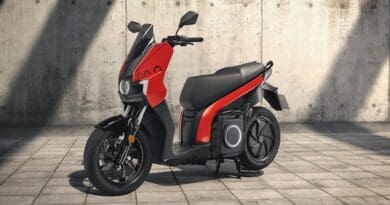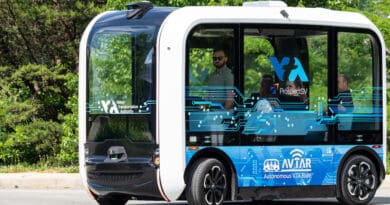EV servicing nearly 30% cheaper than petrol or diesel
Electric cars cost almost a third less in servicing bills than petrol or diesel models, according to new data.
Research by The Car Expert and Clear Vehicle Data shows that over five years, EV service costs are on average 29% lower than those for ICE models, saving owners hundreds of pounds in running costs.
Using manufacturers’ own service schedules, the study looked at the servicing plans of more than 600 new and nearly new models across a wide variety of sizes and body styles. It found that over the course of five years, a petrol owner will pay an average total of £5,709 for regular servicing while an EV owner will pay £4,022.
Those behind the research said multiple factors fed into the EV service cost savings but the simpler mechanical nature of electric vehicles was a significant contributor. With fewer moving parts, no oil changes, and a lower number of components that require regular servicing, EVs require less time and work to carry out regular servicing.
“Servicing is often an overlooked part of the total cost of ownership, but it’s an area where electric vehicles continue to deliver a clear and measurable advantage,” said Stuart Masson, editorial director at The Car Expert. “While overall costs have risen slightly across the market, the long-term maintenance savings with EVs remain compelling.
“Servicing costs may not be front of mind when choosing a car, but they play a major role in what you’ll spend over time, and it’s vital that drivers factor that into their decision-making.”
| Average Servicing Costs | Petrol / Diesel / Hybrid Cars | Electric Cars | EV Saving |
| Year 1 | £308 (+4%)* | £256 (+10%) | 17% |
| Year 2 | £753 (+3%) | £540 (+6%) | 28% |
| Year 3 | £1,209 (+3%) | £839 (+3%) | 31% |
| Year 4 | £1,477 (+26%) | £1,029 (+5%) | 30% |
| Year 5 | £1,962 (+3%) | £1,318 (+3%) | 33% |
| Total after 5 years | £5,709 (+4%) | £4,022 (+4%) | 29% |
* Percentages increase compared to 2024 prices
The research found that in 95% of cases, EVs were cheaper than their like-for-like ICE competitors. The Vauxhall Corsa Electric, for example, is 31% cheaper to service over the first three years than the petrol model – and 32% cheaper from years three to five. The Fiat 500e saves drivers even more, with service costs 34% lower than the petrol version in early ownership and 31% in later years.
Larger models also offer significant savings. The Audi Q6 e-tron is 17% cheaper to maintain annually than the petrol or diesel Q5 in the first three years, and is 19% cheaper from year three to year five. And the ultra-luxurious Mercedes EQS is 28% cheaper than the petrol, diesel or hybrid S-Class from year one to three, and 29% cheaper from year three to five.
However, there are outliers, including the Volkswagen ID.3. Despite its attractive starting price of around £30,000, VW’s electric equivalent to the Golf is 45% more expensive to service than a petrol Mk8 Golf in early years and 22% pricier in years three to five.

Tim Hudson, managing director at Clear Vehicle Data, commented: “We break down servicing costs by every imaginable vehicle configuration – fuel type, body style, mileage, trim level, and more.
“Our data shows a clear trend: electric vehicles consistently cost less to maintain, and that gap remains significant in 2025. With more EV options available than ever before, the case for switching is stronger – particularly when you consider the measurable impact on running costs for both fleet operators and private buyers.
“As electric models expand across every vehicle segment, it’s becoming easier for drivers to choose options that offer real, long-term value.”






